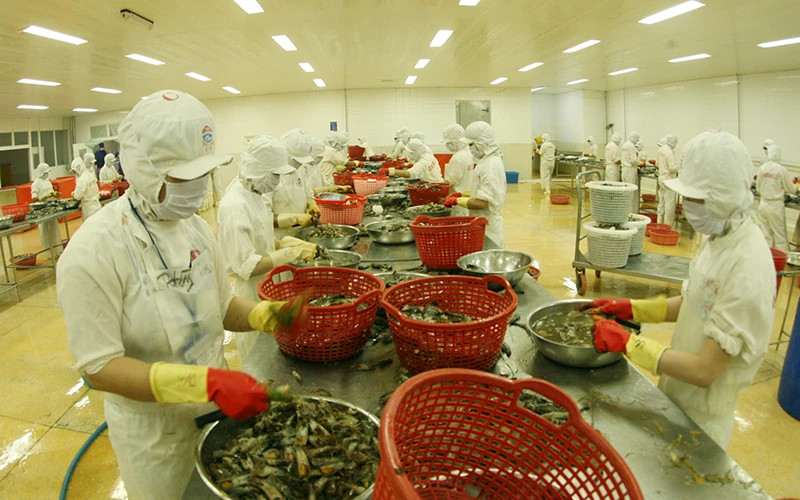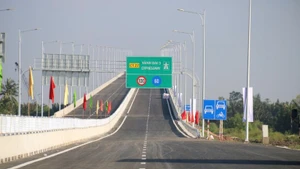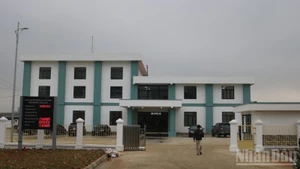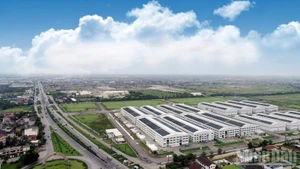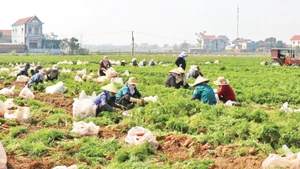Vietnam’s main agricultural products exported to ASEAN are rice, coffee, seafood, vegetables, wood and wooden products. In 2023, rice and coffee posted increases in export turnover while the remaining items saw decreases compared to 2022.
Unbalanced increases and decreases
According to the Vietnam Food Association, Vietnam’s rice exports to the ASEAN region reached 4.82 million tonnes, worth 2.67 billion USD in 2023, accounting for 59% and 57% of Vietnam’s total rice export volume and value, respectively. The Philippines was the leading rice importer of Vietnam, with over 3.1 million tonnes worth 1.75 billion USD in 2023, up 17.6% compared to 2022. Although the amount of rice export fell by 2% compared to 2022, Vietnamese rice still accounts for more than 80% of the Philippines’ total rice imports.
Coffee also recorded growth in the ASEAN market, as the export turnover hit 508.8 million USD in 2023, up 36.5%, and the export volume reached 148,500 tonnes, up 16.8%, compared to 2022. In particular, the price of coffee exports to ASEAN in 2023 also reported a high level, with unroasted and decaffeinated coffee reaching 2,733 USD per tonne in the last month of 2023, a rise of 8.8% over the same period in 2022.
However, many Vietnamese agricultural products exported to ASEAN went down in 2023. Specifically, the export value of vegetables and fruits to the ASEAN market was 310.3 million USD, down over 10% compared to 2022. Wood and wood products also saw a slight reduction, gaining 293 million USD, while seafood exports fell by 13.6% compared to 2022, reaching only 673.6 million USD.
Trade Counselor of the Vietnam Trade Office in the Philippines, Phung Van Thanh, said the Philippines has a large population with differentiated consumers, leading to diverse demand for goods and services. This market is also not too demanding in the consumption of goods and services. In addition, domestic consumer demand for goods and services is large but depends heavily on imported products.
However, Vietnam has not yet taken full advantage of its potential to export agricultural products to this country, especially since no fresh agricultural products (fruits, meat) have entered the Philippine market.
On the other hand, Vietnamese businesses have paid little attention to the Philippine market over the past years. Therefore, it is necessary to boost promotional activities and increase the interest of Vietnamese businesses in the potential of the Philippine market, thereby fostering exports to this market.
Taking advantage of geographical location and tariffs
Currently, Vietnamese agricultural products have a lot of potential for export to the ASEAN market due to great advantages, such as geographical advantages, which help businesses save transportation and warehousing costs. In the context of increasing logistics costs to the US and European markets, the export of goods to nearby markets is a reasonable choice for many enterprises.
In addition, businesses also have many options for transporting goods to the ASEAN market, such as by road, sea and air, creating flexibility in trade and ensuring fast delivery and quality of goods.
Besides, most goods exported to the ASEAN market enjoy preferential tariffs of 0% under the ASEAN Trade in Goods Agreement (ATIGA), helping to facilitate trade activities and customs procedures.
However, to utilise these advantages, Vietnamese agricultural products must be different from products of other countries within the region.
For seafood products, ASEAN is also a potential market for Vietnam in the coming time as the seafood consumption demand of this market is forecast at 51.5 kg per person per year by 2030 and will increase to 61.5 kg per person per year by 2050. The current import turnover of seafood from Vietnam is 673.6 million USD, so Vietnam still has a large room to export seafood to the ASEAN market.
However, like many global agricultural import markets, ASEAN countries are currently increasing requirements for the quality of imported products, especially agricultural, forestry and fishery products. Trade Counselor, Vietnam Trade Office in Singapore Cao Xuan Thang said Singapore has very strict regulations on food production and consumption, food labelling, food additives, food containers, irradiated food, and so on.
Currently, Singapore does not allow the import of fresh eggs, meats, live animals, or raw oysters and sets high technical requirements for Vietnamese dairy products.
Meanwhile, fresh fruits and vegetables imported into Singapore are required not to contain any banned pesticides, and the level of pesticide residue or toxic chemical residue must not exceed the prescribed level in the law or recommendations of FAO/WHO. Therefore, Vietnamese businesses need to firmly grasp information and comply with regulations to export agricultural products to this market.
